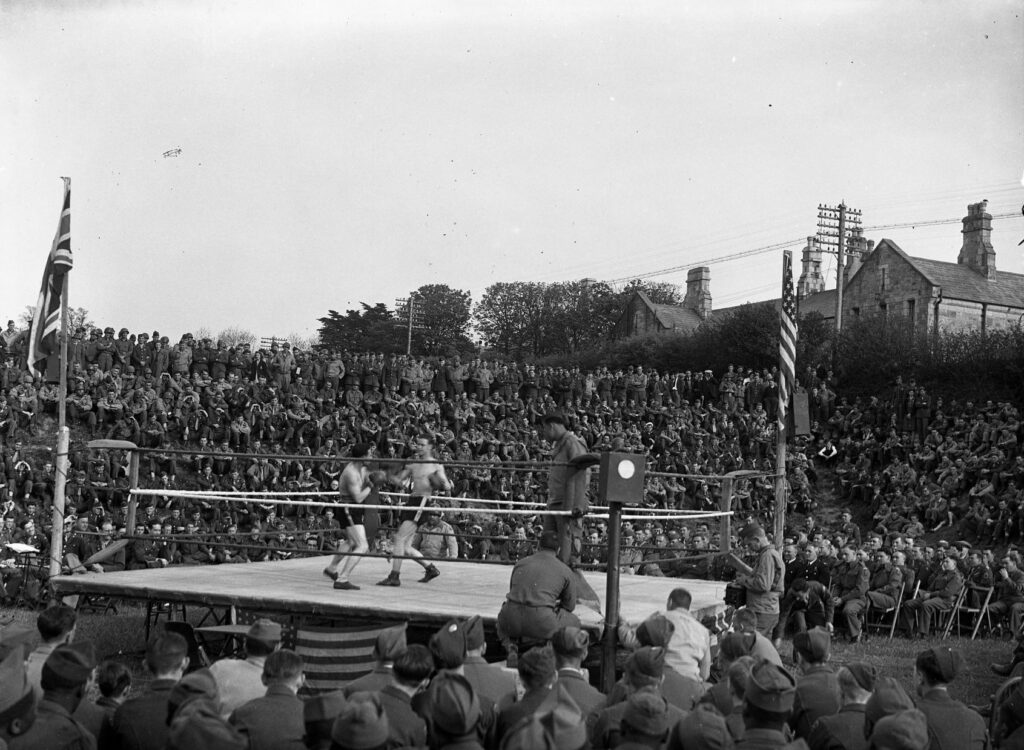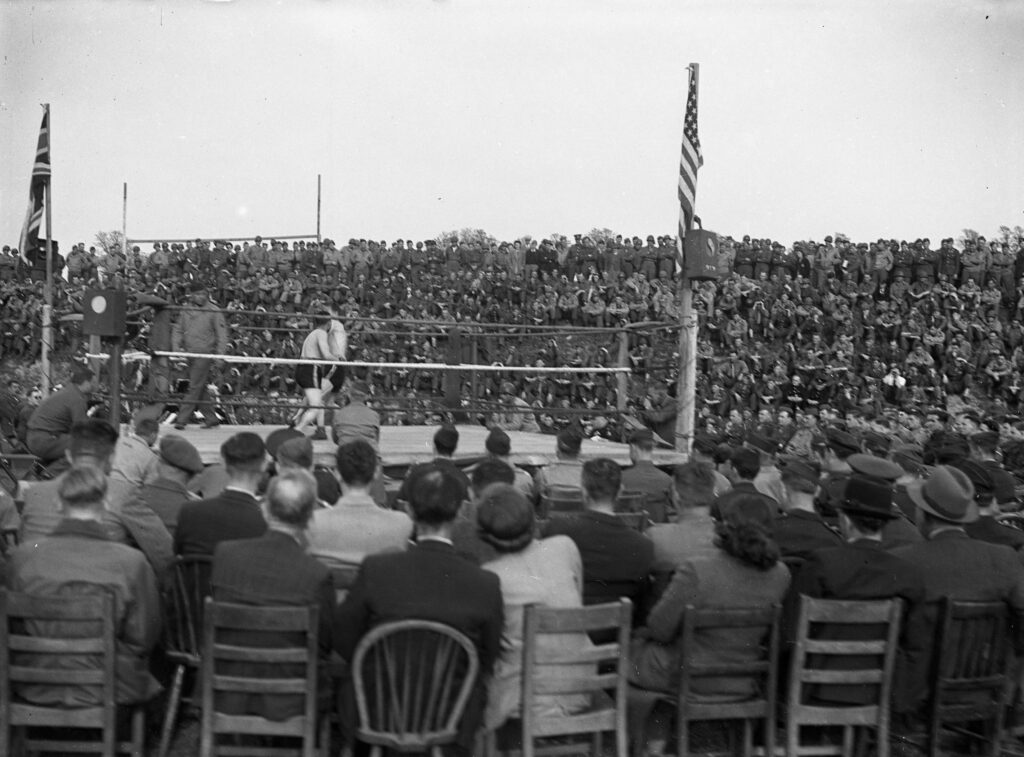American GIs in Bodmin
Early in 1943 the 29th Division of the US Army were billeted in Walker Lines camp in Bodmin for training in preparation for D-Day landings, known as ‘Operation Overlord’. Around 2,000 troops were hosted here and trained around Devon and Cornwall in locations such as Bodmin Moor and Slapton Sands.
The history of the US Army in Bodmin is still being uncovered. As part of our digital collections, we have been acquiring oral histories from those that lived in Bodmin at the time. This includes unpicking the relationship between American GIs, British soldiers, and the residents of Bodmin, at a time of great tension.
In a recent oral history taken from a man who was living in Bodmin at the time of the American GIs being billeted here, aged only 11, he recalls witnessing the treatment of Black soldiers by their fellow American GIs in contrast with how he was received by them.
Joe Louis in Bodmin

At the same time as this treatment of Black American GIs was occurring, Black African-American boxer Joe Louis came to Bodmin for a boxing match and to meet the soldiers ahead of D-Day.
Louis was World Heavyweight champion from 1937 to his retirement but what made him culturally significant was his fight against German boxer Max Schmeling in 1938, which was symbolic of the free-world’s strength against fascism. Whilst Schmeling was not overtly political as an athlete, the press coverage made the match intensely nationalist. They first fought in 1936 when Louis lost to Schmeling but for their rematch in 1938 Louis was victorious which brought hope in the context of the passing of the Nuremberg Race Laws a year prior.
Louis’ acceptance as a national icon was momentous in America at the time, even being featured recruitment campaigns such as in 1942 war recruitment slogan ‘We’ll win, because we’re on God’s side.’ Although this showed promising acceptance for Black Americans in wider American society, it was not the case for everyone.
Jack Johnson was the first black heavyweight champion boxer from 1908 to 1915, whose victories were by tarnished by racist reactions. His marriages to white women encouraged further disapproval as interracial marriages were illegal in many states at the time.
Had Louis not defeated German boxer Max Schmeling, would he have achieved the same acceptance in a racially divided society? How did his acceptance in boxing shape the future? Did it impact relations between Black and White American GIs in Bodmin?

These images have been digitised in partnership with Kresen Kernow as part of the Imperial War Museums Second World War and Holocaust Partnership, funded by the National Lottery Heritage Fund.
Sources:
Gerard Cortese, Talk: A US soldier in Bodmin during the Second World War, Bodmin Keep, https://www.youtube.com/watch?v=vTvJuvds-JE
Richard Bak, ‘Joe Louis: The Great Black Hope’, (Dallas: Taylor Publishing Company, 1996)
Eric W. Jentsch, ‘Jack Johnson, the First Black Heavyweight Boxing Champion’, Smithsonian Mag, posted February 22 2022, https://www.smithsonianmag.com/blogs/national-museum-american-history/2022/02/22/jack-johnson-boxing-champion
Resources:
For more information on the relationship between Black and White soldiers in Bodmin, see Kate Werran’s book, ‘An American Uprising In Second World War England: Mutiny in the Duchy’
For information about organisations striving to make Cornwall Anti-racist visit: https://www.blackvoicescornwall.org/
To discover the work Kresen Kernow have been undertaking around Black Histories visit: https://kresenkernow.org/our-collections/collections-guides/black-histories/
If you have any stories you would like to share relating to US Army in Bodmin during the Second World War contact us at research@bodminkeep.org.uk

